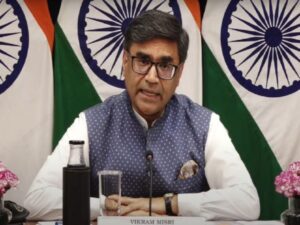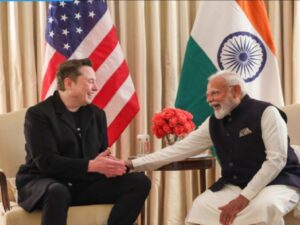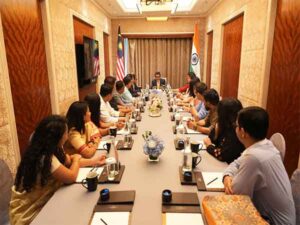The tourists who visit Ukraine’s warzones
By Philipp Wassler, University of Bergamo
Bergamo (Italy), February 24 : War attracts a certain type of tourist as Ukraine has discovered. Apart from safety issues, the legal and ethical ramifications are complex.
The posts are from many different people but usually begin the same way: “I am looking to volunteer in Ukraine ” The queries are from medical professionals, former soldiers, truck drivers, college students and countless others. Some have weapons; many don’t. All have the same goal: to get to Ukraine and join the war.
One video on the “volunteers for Ukraine” subreddit forum is of a school janitor from Montana now helping evacuate women and children from battle zones.
Another is a mother-of-two and nurse from Los Angeles helping the wounded on the frontlines. One older woman dropped everything in the US and now helps save animals caught up in the chaos.
The idea of visiting a warzone may seem crazy but since Russia invaded Ukraine 12 months ago, there has emerged a group determined to get firsthand experience of the battlefields.
Tourism to Ukraine was just starting to recover from the devastation of COVID-19 when Russian president Vladimir Putin ordered the invasion.
The bulk of the fighting has taken place in the country’s east. Farther west, despite regular missile attacks on the capital Kyiv and other cities, tourism is still encouraged, despite the risks.
Tourists who have recently visited Ukraine speak of Kyiv as being surprisingly similar to peacetime (albeit with more poverty on the streets and less-crowded public transport).
Favourable exchange rates make services cheap and most banks, hospitals, pharmacies, shops and restaurants operate as normal. There is a downside, though the risk of being shot, blown up, wounded, poisoned, infected or trapped.
Despite the risks, the flow of foreigners to Ukraine has not let up, although reliable statistics are scarce.
The Ukrainian government established a foreign legion just days after the invasion. Thousands responded. One military commentator labelled these foreigners fighting in Ukraine as a “legion of the damned”, an army of “misfits, veterans and war tourists”.
Some of these war tourists pay the ultimate price. Australian man Sage O’Donnell was killed just before Christmas. The ex-soldier was helping train Ukrainian volunteers when he died.
He’s the fourth Australian to be killed. Overall, more than 112 foreigners have perished while many others have been captured by the Russians.
War tourism is not a new phenomenon, as historical sources cite the presence of onlookers at historical battles such as the battle of Waterloo and the American Civil War’s Battle of Bull Run.
Shortly after the start of the Russian invasion, the subreddit “volunteers for Ukraine” was created and had 50,000 members within a month. Text processing of more than 10,000 posts showed the main topics for discussion within the forum.
Combat volunteers asked information on issues such as “equipment and resources”, “language skills”, “basic training”, “military background” and need for “prior service”.
Non-combat volunteers shared information on “medical experience”, “medical training”, “medical supplies” and “combat zone experience”.
Other forum members said they would not travel to the combat zone directly, but try to support Ukraine through financial donations, online information sharing and dismantling fake news.
Usually war sites are only visited once conflict has subsided, but recent studies suggest the practice of travelling to active areas of conflict is growing, a phenomenon which is referred to as “hot” war tourism.
Although mostly not explicitly stated, from their posts it can be inferred they were interested in watching, a voyeuristic view on a spectacle as real as it gets.
These potential war tourists were concerned with “logistics and barriers”, “how to cross the border” and “how to acquire a plane ticket”.
“Cold weather gear”, “sleeping bags” and “language skills” were other issues of interest among them.
Travel to conflict zones as a volunteer or paid foreign fighter is illegal in many countries, but this seldom applies to visit active war zones as an onlooker. Governments around the world are mostly unequivocal: do not travel to Ukraine.
In the case of Ukraine, studies have suggested war tourists often end up as active participants in the conflict. Westerners have also entered Ukraine to fight for the Russian side.
Whether it is ethical to visit an active warzone for whatever reason is up for debate. And whether tourists arrive with the intention to be actively involved in the conflict is not clear and reliable data is not available.
What is clear is the lack of understanding, control and legal frameworks to regulate war tourism and its related dangers.






